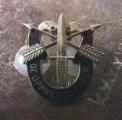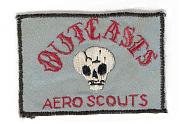Additionally, what was the educational objective? It doesn't sound like there really was one. The problem as I see it is relevancy. The order appears irrelevant to the course material, hence people are left to speculate as to the order's purpose. Since it was a political speech, it's inevitable that people are going to connect the dots and ask questions about politicization. FWIW, I seriously doubt there was any political motive in the order. I believe it was lawful and everyone had a duty to obey it, but I agree with Ken that it was ill-advised.
SPECULATION ALERT: I've been around long enough to see subordinates to GO's take their often off-the-cuff remarks and run with them. A GO throws out an idea to elicit feedback, suggests it might be worth looking into and someone down the line (usually field grades - sorry, but there it is) turns it into a GO-directed order for his/her subordinates. It sounds to me like this might be such a case.






 In any event, reading a transcript was always an option. So, at minimum, telling military students "how to suck eggs" is even more stupid than it always was..
In any event, reading a transcript was always an option. So, at minimum, telling military students "how to suck eggs" is even more stupid than it always was..







Bookmarks